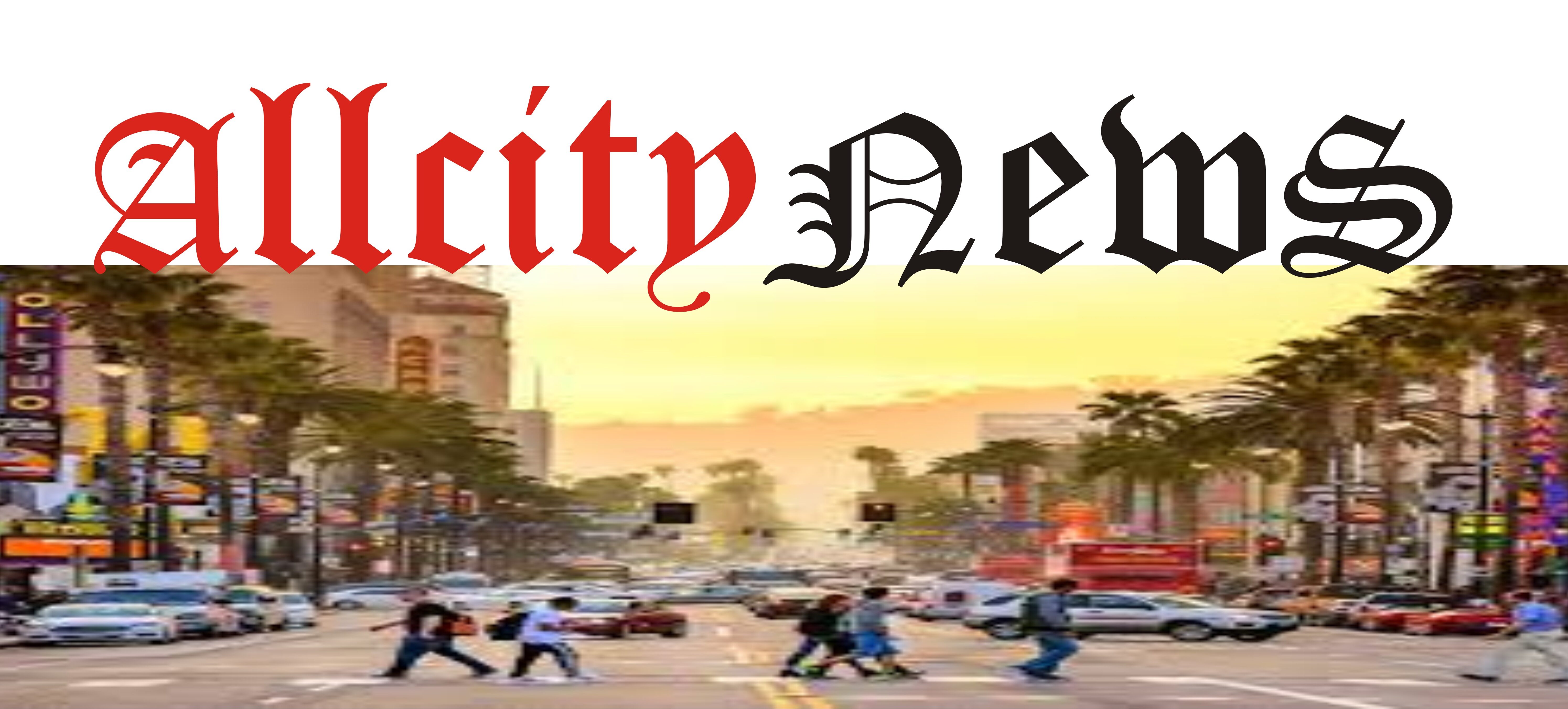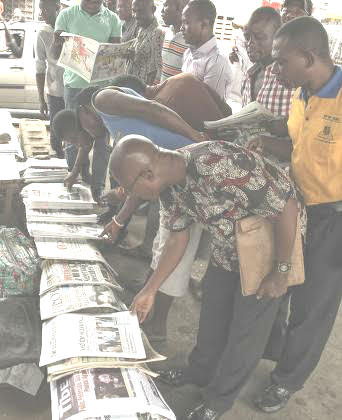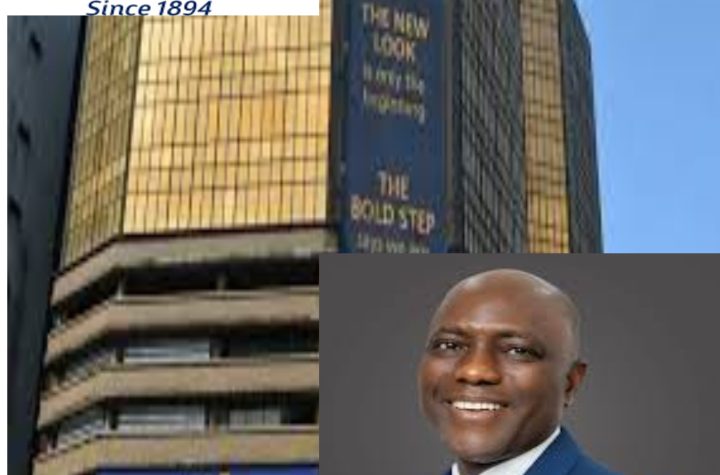
By allcitynews.ng
Keynote speech by Dr Muda Yusuf, CEO, Centre for the Promotion of Private Enterprise {CPPE}, at Labour Writers Association of Nigeria Workshop, Conference Hotel, Ijebu-Ode, 16th September 2023
Introduction
Let me begin by appreciating the Labour Writers Association for inviting me to share my thoughts on a very important theme: Building A Resilient Economy In An Emerging Administration: Roles Of Stakeholders. This is important because we are still in a transition mode. The Tinubu administration just marked its 100 days in office.
In making this presentation I would review the fundamentals of a resilient economy, the necessary macroeconomic conditions, fiscal and monetary policy dimensions, sectoral reforms and the role of stakeholders in deepening economic resilience.
FUNDAMENTALS OF A RESILIENT ECONOMY ECONOMIC GOVERNANCE
The administration should establish quality economic governance consistent with tested economic principles and empirical evidence. This should also be contextualized within socio-economic peculiarities. No economic management model should be adopted in absolute terms. Policies must be reviewed periodically in the light of prevailing circumstances. This is not to suggest an endorsement of policy summersault which is very disruptive to the economy.
This is critical from the onset for positive signaling and the deepening of investors’ confidence. Good economic governance consists of the following attributes:
· Quality economic team to give guidance and direction on general economic policy direction, policy conceptualization and needed reforms.
· Level playing field for all economic players, and avoidance of state capture
· Transparent economic policy formulation process.
· Competitive economic environment with minimum monopoly dominance.
· Broaden the role of markets for value delivery and boosting of private enterprise in the economy. State institutions do not have the capacity to manage enterprises. But there should adequate regulatory framework to protect the citizens from exploitation by capitalist elements. We should promote capitalism with a human face.
· Robust monitoring and evaluation framework to regularly review the effectiveness and impact of economic policies and regulatory practices.
· Robust and regular stakeholder engagement by key government agencies to ensure proper alignment of policies with investors sentiments and the welfare of the citizens.
· Government institutions that play technical roles should be headed by tested technocrats.
FIXING THE MACROECONOMIC FUNDAMENTALS
Prioritize macroeconomic stability with emphasis on moderating inflationary pressures, Stabilizing the exchange rate and boosting economic growth.
This would require a good mix of fiscal and monetary policies. Fiscal deficit should be kept within statutory thresholds.
FISCAL CONSOLIDATION IS CRITICAL FOR ECONOMIC RESILIENCE
· Reform of the Tax regime to ensure efficiency in tax administration, reduce tax evasion and tax avoidance and eliminate multiple taxation. Some steps are already being taken in this respect as the government has set up a Fiscal and Tax Reform Committee.
· Elimination of fuel and foreign exchange subsidies would save the economy an estimated N10 trillion annually.
· Unlock more income from revenue generating agencies through enhanced efficiency of their operations.
· Initiate budget reforms to ensure fiscal discipline, curb budget padding, curb duplication of projects and review the service wide votes to ensure transparency.
· Ensure value for money in government expenditure and procurement.
· Commit to reduction in the cost of governance.
· Optimization of the utilization of national assets to unlock liquidity
FOREIGN EXCHANGE POLICY REFORM
· Recent foreign exchange policy reform is laudable. It would unlock inflows of capital into the economy, reduce arbitrage in the forex market and improve transparency in the forex allocation.
· Removal of impediments to market mechanism in allocation of forex will boost inflows from Foreign Direct Investment [FDI], Foreign Portfolio Investment [FPI], Export Proceeds and Diaspora remittances. However, we should avoid a complete floatation of the naira to avoid currency volatility amid intense speculative pressures. I must also acknowledge that the reform has its downsides, especially the further depreciation of the currency, which is expected to be temporary.
OIL AND GAS SECTOR REFORM
The sustained oil and gas sector reform is critical for sustain resilience of the Nigeria economy. The government should demonstrate unmistakable commitment to the implementation of the Petroleum Industry Act [PIA]. This would attract more investment into the oil and gas sector.
The current impressive momentum to tackle oil theft should be sustained in order to boost oil production.
TRADE AND TARIFF REFORM
Trade policy reforms typically does not feature prominently in economic conversations in the country. But it an import component of reform needed to deepen the resilience and productivity in the economy. We need to ensure Tariff regime that adequately protects local industries. Import duty on intermediate products and critical industrial inputs should be reviewed to reduce production costs. Tariff review processes should be more inclusive and transparent.
There should be a credible dispute resolution system to mediate between the customs and the business community, especially with respect to valuation and tariff classification. The administration should prioritize trade facilitation and remove all non-tariff barriers to trade. Removal of all customs and other security checkpoints within the country intercepting cargoes that have been duly cleared at the ports.
The practice by operatives of the Nigeria Customs Service and other security agencies intercepting cargoes that have been duly cleared at any of our ports should be discontinued. The practice has been proven to be disruptive of trade and largely extortionist. And only recently, the freight forwarders had to protest the frequent interception of cargo by the police in Lagos. The relevant authorities should please put a stop to these disruptions of business activities in the country.
We commend the appointment of career officer as Comptroller General of the Nigeria Customs Service. This should be the standard practice going forward. Appointing non career persons to head the institution has been detrimental to professionalism and morale of officers in the service.
Meanwhile, the government should ensure a balance between the revenue objectives and trade facilitation objectives of the Nigeria customs service. There is currently a disproportionate focus on revenue generation to the detriment of investment growth in the economy.
SECTOR SPECIFIC INTERVENTIONS FOR RESILIENCE
Agriculture
· Policy on agriculture must be holistic, focusing on the entire value chain. Due attention must be given to cost and availability of inputs, production and productivity, application of technology, processing and storage, logistics and marketing.
· There is an urgent need to transit from subsistence farming to mechanized and commercial agriculture driven by technology.
· There is need to attract the youths into agriculture as current farming population is rapidly ageing. This would only happen if sector is technology driven.
· Strengthen the linkage between agriculture and industry within a sustainable backward integration framework.
· Agriculture policy should cover activities in crop production, poultry, livestock and forestry. There is a tendency among policy makers to focus disproportionately on crop farming to the neglect of other segments of agriculture.
Industrialization
The following urgent steps needs to be taken to address the concerns of the of manufacturing sector:
· Ensure liquidity in the foreign exchange market to guarantee access to foreign exchange for the procurement of raw materials and machineries for industry.
· Rapid investment in core industries to support backward integration aspirations of government. Such core industries include the iron and steel, petrochemicals, aluminum smelter, pulp and paper and refineries.
· Scaling up investment in infrastructure through the injection of more funds and the attraction of private capital into the infrastructure space. This would reduce production cost and boost productivity in manufacturing.
· Creation of more industrial parks across the country and improvement in the facilities in existing ones.
· Need to strengthen current development finance to support the real sector with appropriate financing – single digit facility with a minimum of five years tenure.
REGULATORY REFORMS
· We desire a regulatory environment where regulatory risks and regulatory shocks are at the barest minimum. This is necessary to boost investors’ confidence.
· Regulatory institutions and economic players must relate as partners, without necessarily compromising regulatory effectiveness.
· There should be an end to the culture of regulatory intimidation, coercion and undue harassment.
· There should be regular consultative forums between industry players and regulators.
BANKING SECTOR REFORMS.
· The new CBN Governor must ensure that the banking system is repositioned to play its primary role of financial intermediation for the benefit of investments and economic growth.
· Some key regulatory instruments of the CBN should be interrogated to ensure their appropriateness and impact on the economy. The CRR regime is one of such policy instruments that would require a review. Current CRR of 32.5% is one of the highest globally. It has serious implications for financial intermediation.
· Development finance operations in the economy have had some positive impact for a few beneficiaries in the real sector. But it needs to be streamlined to minimize loan losses and ensure effective targeting of deserving investors and sectors.
ROLE OF STAKEHOLDERS IN ECONOMIC RESILIENCE
Conceptual Issues and Definitions
· Stakeholders are Individuals or groups with an interest in a project or programme because they are involved or affected or likely to be affected by the outcomes; and/or who may exert influence over the project or its deliverables.
· A stakeholder is any group or individual who can affect or be affected by the activities of project or programme.
· Stakeholders are those with vested interests in the outcome of a project.
STAKEHOLDER STRUCTURE
There are Internal and External stakeholders in government. Both are important to achieve good governance outcomes.
Internal Stakeholders
· Members of the federal Executive Council – Minsters and advisers.
· Bureaucracy which has the responsibility of implantation of government policies.
· Judiciary which has responsibility for rule of law and proper interpretation of the constitution and other laws.
· Regulatory Agencies which have responsibility for ensuring compliance on standards, quality processes etc.
· Heads of Extra-ministerial Departments
· Security Agencies. Without security government will not achieve desired outcomes from governance.
· Legislature very critical for appropriate laws, budgetary appropriations, legislative framework, and oversights.
Onboarding the stakeholders is very critical for the success of administration. It also speaks to the significance of coordination and synergy among the critical organs of government. All the ministers should be mandated to immediately engage all their internal stakeholders to ensure the success of their tenures.
Therefore, the Presidency must ensure robust performance management framework for all internal stakeholders. There should be a robust monitoring and evaluation mechanism to ensure the realization of desired results.
The same approach is true of the judiciary and the national assembly. All internal stakeholders must be on board as they manage different facets of the governance process.
EXTERNAL STAKEHOLDERS
Some of the external stockholders that the government needs to relate and collaborate with to ensure inclusive governance include the following:
· Labour Unions
· Private sector, both formal and informal
· Civil society organizations
· The Media
· Diplomatic Missions
· Multilateral organizations
· Subnationals
· Ordinary citizens.
Engagement with these stakeholders is a condition precedent for a successful democratic governance. It also gives the governance process a flavour of inclusion. The truth is that political appointees cannot understand any sector better than those who are operators in the sector. Therefore, engagement with external stakeholders must precede any actions or policies by the new government, especially at the sectoral level. The value of stakeholder engagement is in the empirical content it brings into the policy formulation and implementation processes.
Actions and interventions of government must be evidence based. And it can only be so if such actions or interventions have been preceded by robust stakeholder consultation. The president should make this consultation mandatory for all the cabinet ministers and demand for the outcomes of such consultations.
SECTORAL STAKEHOLDER ENGAGEMENT
There are peculiarities across sectors. This underlines the need for periodic sector specific engagements to determining the pain points of each sector and determine timelines for delivery of intervention outcomes. These engagements should cover Manufacturing, ICT, Telecoms, Aviation, Agriculture, Trade, Maritime, Entertainment, Financial services, Hospitality, solid minerals etc. The economic policy formulation process will be greatly enriched by these engagements.
The importance of collaboration with the private sector stakeholders cannot be overemphasized. The private sector currently contributes over 80% of the nations GDP, over 70% of the jobs and over 80% of government revenue. The private sector players [Microenterprises, informal sector, SMEs, Large Enterprises, Multinationals] are the pillars of the resilience of the Nigerian economy. They have to part of any strategy to deepen economic resilience.
STRUCTURE OF STAKEHOLDER ENGAGEMENT
Each Minister should adopt the following engagement template:
· Identification of the critical stakeholders. It is impossible to engage everybody.
· Prioritize the stakeholders
· Development of an engagement plan.
· Analysis of engagement outcomes.
· Action plan for policy interventions.
WHY STAKEHOLDERS RESIST REFORMS OR CHANGE
· Perceived negative effects on their personal or group interests.
· Uncertainty or lack of clarity on possible reform outcomes.
· Divergence between agreed plan and unfolding reality.
· Lack of conviction about the value of the reforms.
· Belief that reforms are not desirable.
· Fear of giving up their comfort zone, fear of change.
· Disagreement with the change process.
· Resistance based on past experience.
· Trust deficit.
It is important therefore that for the government to achieve it desire for change, these concerns of stakeholders should be properly addressed. Additionally, the communication process must be very robust to ensure an inclusive change process.
I thank you for attention.
Dr Muda Yusuf, Director & CEO, Centre for the Promotion of Private Enterprise {CPPE}, 16th September 2023.
For ADVERT Placement;
for EVENT Coverage;
Have story to PUBLISH;
HAVE Breaking story with pictorial evidence
OR wants to assist allcitynews.ng
by DONATIONS,
kindly contact us via ojezand@yahoo.com. Thank you.
Allcitynews.ng’s goal: To interface between policy makers & general public, most influential, informative and reliable issues-based online newspaper, working for unity, peace and development of the Country.
Disclaimer:
Comments expressed here do not in anyway reflect the opinions of allcitynews.ng or any employee thereof. It assumes no responsibility or liability for any errors or omissions in the comments.









More Stories
Reasons why FirstBank Unveiled Advanced Facial Biometric Technology
Why PenCom wants Pension funds to embrace alternative aassets, diversify beyond bonds
Ecobank Nigeria spreading its tentacles, unveils new premier Branch on Victoria Island Lagos